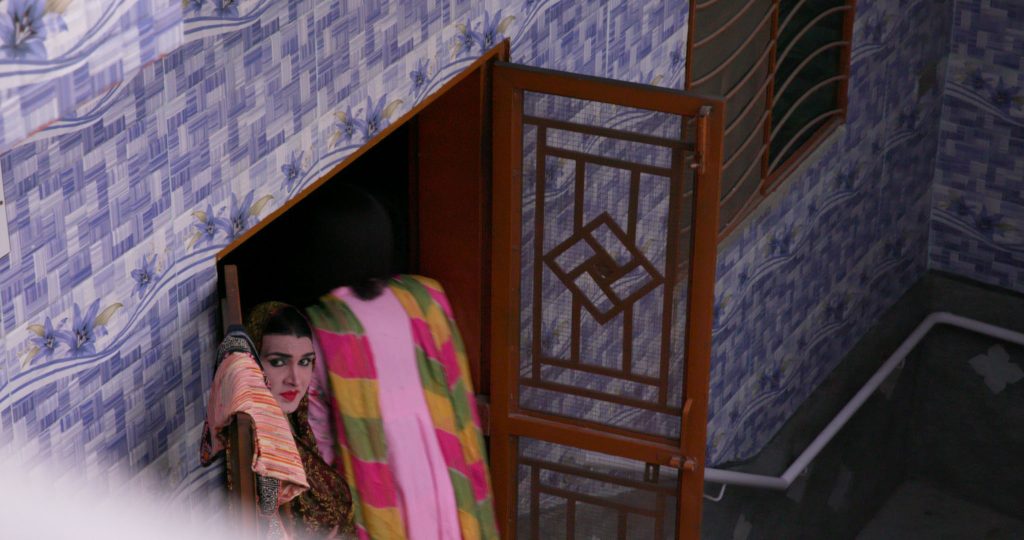
We have strides to make within our Western societies but it’s easy to forget how stifling the rest of the world still is towards gender queerness and non-conformity. Let’s take a quick trip to South Asia where we find the khwaja-sera (transgender) community. Although they have served as caretakers during the Mughal empire, have made prominent contributions to art and culture, and allegedly can bring good fortune and fertility – they still occupy a marginalized place in present-day society.
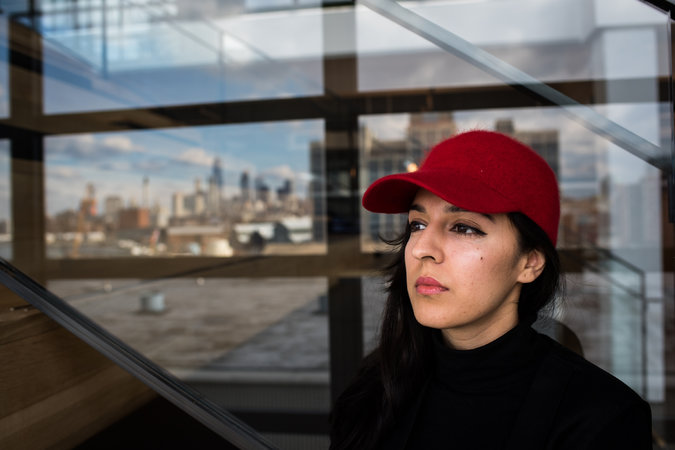
I had the chance to interview Khaula Malik, a Pakastani-American filmmaker, who is determined to change the world’s perception of the Khwaja-Sera community within Pakistan in her upcoming film, THE NOBLE HALF, which is a few short hours from raising $15,000 on Kickstarter.com.
People often forget that filmmaking, like any art form, comes from within, from pain, from sadness, or from a question that the filmmaker has about the world. What has been your journey to this point and what prompted you to use this medium of storytelling?
Khaula: I really wanted to see and hear voices like mine in the media when I was growing up, but I didn’t think I’d end up trying to be one of those voices. I studied economics and anthropology in undergrad and it wasn’t until after I graduated that I seriously thought about pursuing a creative career which at the time I thought translated to pursuing PR or Advertising.
After getting laid off from a PR job after college, I decided I didn’t want to go back into that world. A few months later, while doing odd jobs, a friend of mine recommended me to a Pakistani director, Mehreen Jabbar, who was about to film a TV show in New York City. I went for the interview, thinking it was for a job as her assistant, but only after I got the job did I realize it was to be an assistant director.
Needless to say, it was baptism by fire! After that project, I knew this was the industry I wanted to work in. I think the arts — specifically film — give us an opportunity to transport people into the lives of those they may not be exposed to in their day-to-day. The desire to give someone insight into a person or a world they don’t know is what drives me to be a storyteller.
What drew you to the Khwaja-Sera community?
Khaula: My first in-depth exposure was when I was in undergrad studying anthropology, I visited Pakistan and met a member of the community at my aunt’s house. I realized that while I’d heard stories about this community as a child and had seen them at weddings, I had never met someone personally until that moment. After getting to know her throughout my stay and meeting a community of khwaja-seras in Karachi, I became interested in further exploring the community’s historical and cultural presence in the subcontinent.
I ended up writing my anthropology thesis about the third gender in South Asia through the framework of their historical and cultural presence. It’s a long story, but in short, gender queerness and non-conformity had existed and thrived in our communities long before conversation around the presence and rights of these communities became an area of focus in the West.
After my trip, I was inspired to make a documentary that didn’t feel too academic but didn’t fully realize how to do that until I went to graduate school for film and became familiar with the work of Alma Har’el, specifically her documentary, LoveTrue. She has a dignified way of capturing her subjects and giving them the freedom to guide the audience in an empathic manner. I think she’s pushing the boundaries of documentary as art and I’d like to do the same with this film and my subsequent films.
Bubbli, Eshaa, and Sharmeela seem like incredible women. What about them specifically intrigued you?
Khaula: They’re all so different and unique! I first met them while they were running the cafe at the National College of Arts campus in Rawalpindi, Pakistan. It was really incredible to see how seamlessly they ran the whole place, but what really struck me were the strong bonds they had created with the students at the university. Hearing students talk about how their biases about the khwaja-sera disappeared when they met Bubbli, Eshaa, and Sharmeeli was really touching. It struck a chord with me because it showed how a space like a cafe could really break down barriers among people. I wanted to document Bubbli, Eshaa, and Sharmeeli’s lives at the cafe and then use it as a jumping-off point to explore their lives outside of work. Of course, when the cafe shut down, the film changed shape.
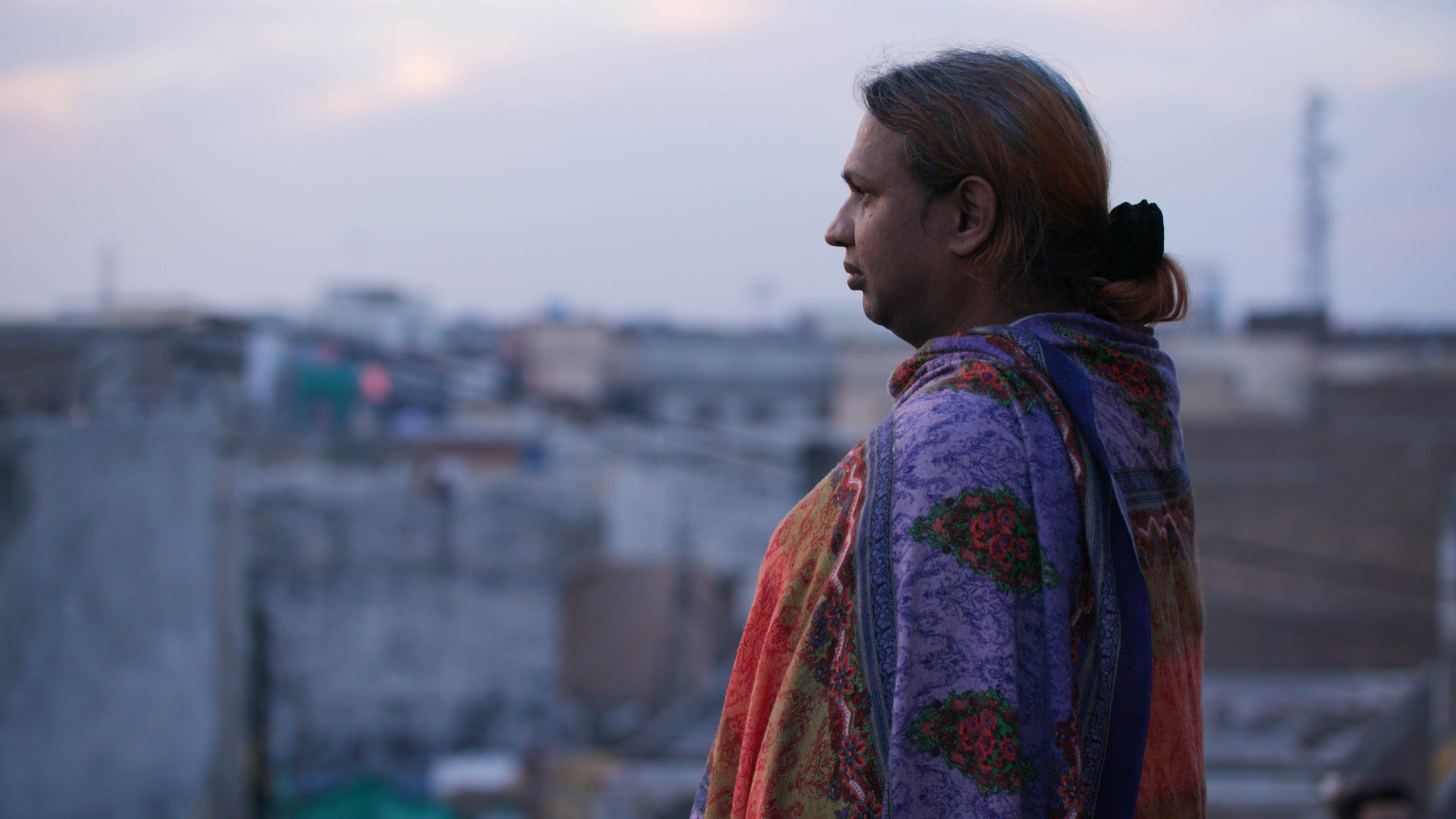
How did they feel about their lives being documented in this way? Did they pushback at all on certain elements?
Khaula: At first, they were really hesitant — particularly Eshaa and Bubbli — because they didn’t know what to expect. They have given interviews in the past to the media and were hesitant to share their story with me because nothing came of the interviews they had given to media outlets in the past. It took some time for me to gain their trust and has taken me going back and forth to Pakistan for three years for them to understand my commitment to their stories. I think the consistent exposure they’ve had to me over the years has helped deepen my relationship to them. When there’s pushback, it’s usually indirect, but I know if one of them isn’t picking up my calls, they aren’t in the mood to deal with me and I’ve learned to give them space.
I was at CPH:DOX in Copenhagen in March listening to Mila Turajli? speak about filming her documentary, “The Other Side of Everything,” and she made an amazing point about how a documentary really takes shape when your subjects start thinking that you’re some kind of joke and will never finish the project. They no longer feel self-conscious about the camera, because they’re convinced you’ll never do anything with the footage. I feel like I finally reached that point with Bubbli, Eshaa, and Sharmeeli on my most recent trip to Pakistan in February!
It’s no secret that people judge a film by its title; it sets the bar for expectations. Why did you choose the title THE NOBLE HALF?
Khaula: I was at a documentary lab in Arkansas and everyone was brainstorming new names for their films. I started talking about the etymology of the term khwaja-sera and how khwaja translates to nobleman in Farsi/Urdu and depending on the source, sera can be translated to half or middle. Immediately one of the other filmmakers suggested The Noble Half and I loved it. Not only does it embody the meaning of the term, but I feel like it really embodies the place I think this community has occupied in South Asian culture and society. In particular their significance during Mughal Court society as protectors of the harem and advisors to the Emperor.
The community also has spiritual significance in both Islam and Hinduism. In Islam, the soul isn’t gendered, so the community who are seen as part of both genders, then becomes an embodiment of the divine. In Hinduism, the community derives its significance from the story of Lord Rama, when he was exiled from his home, he asked all the men and women of the town not to wait for him. When he returned, there was only one community of people who had been waiting all this time, and they didn’t identify as male or female—they were the khwaja-sera/hijra community. He blessed them, and from then on, they occupied a privileged space in Hindu mythology.
Why do you think it’s important, now more than ever, to be cognizant of how colonialism is impacting daily life in South Asian countries?
Khaula: I think we’re finally starting to talk about the impact of colonialism on our communities. I think the critique was present in the past, but with the rise of social media and the ease in how we can connect globally, there’s more space to express our sentiments. I also think we’re starting to survey how our narratives have been shaped through a colonial lens. What people might not realize is that the marginalization of the khwaja-sera community was systematic and fundamental to the British Empire’s strategy of divide and conquer. In the subcontinent, they didn’t just pit Hindus against Muslims, they also imposed their heteronormative ideals and framework on society. Because the khwaja-sera community didn’t fit into a heteronormative ideal, they systematically marginalized the community. That marginalization is what still stands today. There is so much erasure of our histories and so you have people who justify marginalization through the lens of religion or blasphemy, when in fact it came from outside our culture.
In the process of making this film, I’ve had to face my own reckoning of being a Pakistani-American and dealing with the generational trauma that people in our communities are struggling with. I think so many young people are fed up with how our identities have been hijacked and shaped by others. We want to reclaim our voices, our stories, and redefine who we are and what we represent.
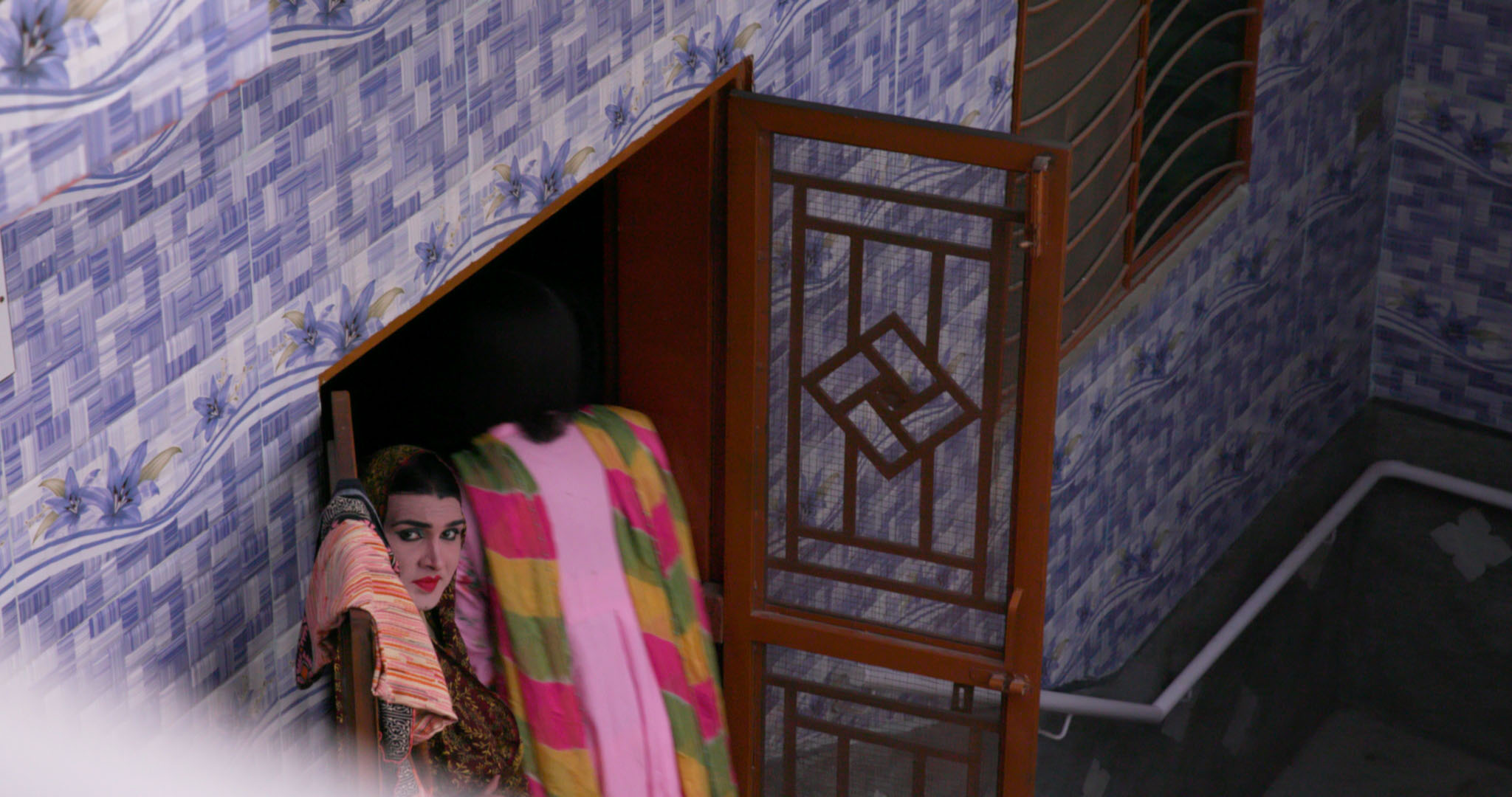
We wish you all the best in your funding. Independent filmmaking is no easy task. Funding aside, what has been the most challenging aspect in documenting a community that is so underrepresented?
Khaula: Building trust with your subjects is the single most important aspect of documentary filmmaking. In underrepresented or vulnerable communities, it’s even more important because you are always walking the fine line of representation vs. exploitation.
Have you gotten any pushback or negative press in Pakistan? Or in general? How do you process that?
Khaula: Knock on wood, no negative press or pushback in Pakistan…as of yet! We have received some pushback around representation and how my making a film about a community that I’m not directly a part of can be perceived as exploitative. I think those concerns are valid.
Representation is something I take very seriously. I recognize that there are blindspots I will encounter in the process, but I’m also doing what I can to ensure that Bubbli, Eshaa, and Sharmeeli have a voice in their narratives. The film will predominantly be cinema verite and will unfold in real-time. Any voiceover in the film will come from the people represented in the movie and not a third-party narrator.
I also recognize that despite all these efforts, I might still fall short. But at this stage, I’ve already come so far in the process that there isn’t any turning back. I’m willing to take a chance, knowing that there might be some negative press or backlash for my work.
And what has been the most rewarding part of this whole process?
Khaula: Documentary filmmaking is a long and arduous process, and you often find yourself feeling like there’s no light at the end of the tunnel. But, Bubbli, Eshaa, and Sharmeeli have become like family to me. It is humbling that they have trusted me to tell their stories. It is a privilege and an honor.
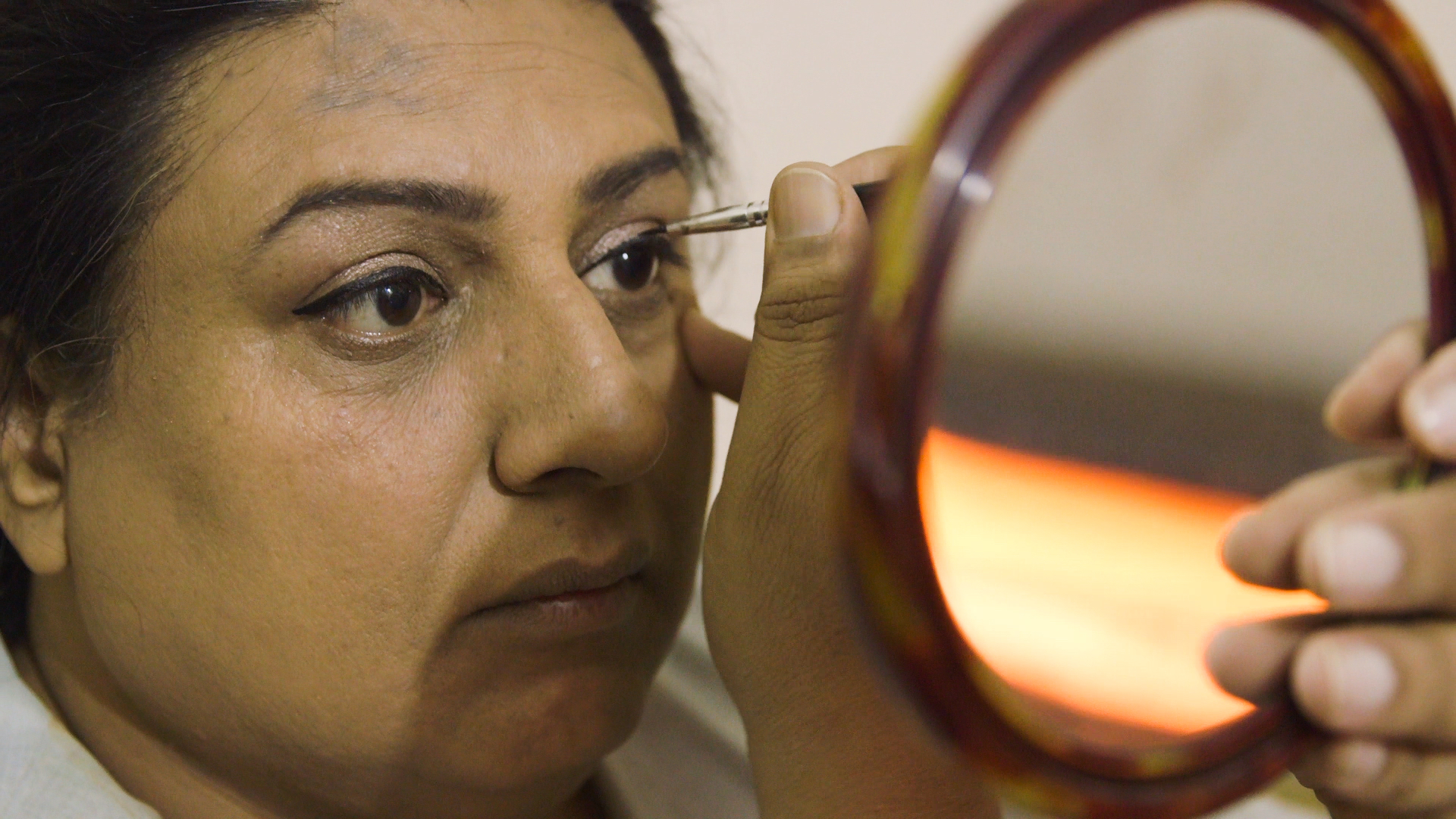
What change do you hope this film inspires in how we view the Khwaja-Sera community?
Khaula: There are two things that I really hope this film can help do. First, I hope it can serve as a touchpoint for employment rights for the khwaja-sera community in Pakistan. Ideally, it would lead to direct action where we see an increase in opportunities for khwaja-seras in the workplace. I also hope it helps widen Bubbli’s activisms efforts to help her community where the things she is doing on a local level can get amplified across the country.
Secondly, on a more global level, I hope the film can start conversations around the history of the subcontinent as a safe haven for individuals who have not fit into heteronormative ideals. I’m tired of our part of the world constantly being stigmatized and seen as backwards. Our cultures deserve to be celebrated for their richness and their nuance, and I hope this film can become a more nuanced view of Pakistani society and one that the West is not used to seeing.
We at Brown Girl Magazine can’t wait to see the economic and cultural impact this film and Malik will have once the project is released. By donating to this campaign, you’re able to write a new chapter for the Khwaja-Sera community and many other underrepresented communities like this around the world.




